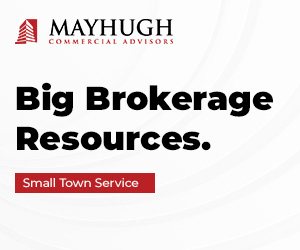


If you had asked me 45 days ago what I thought interest rates were doing, I would have said they would remain relatively flat like they have for the past few months, with a gradual increase. All bets are off since we saw an annual U.S. inflation rate of 7% in January, 7.9% in February and 8.5% in March (the last time the inflation rate was above 7% was February 1982), as well as the invasion of Ukraine by Russia.
At the Federal Reserve meeting in March, Federal Reserve Chairman Jerome Powell indicated that “the labor market is very strong, and inflation is much too high,” and that the committee “will take the necessary steps to ensure a return to price stability.” As a result, the committee elected to increase the Federal Funds Rate by 25 basis points.
WHY IS THIS IMPORTANT?
Simply put, the Federal Funds Rate is the interest rate that banks charge each other to borrow or lend excess reserves overnight. Any time the Federal Funds Rate goes up or down, it affects what consumers pay on other debt instruments, such as credit cards, car loans, bank loans, and residential and commercial mortgages. As this rate goes up, so does the cost of borrowing, and vice versa.
Going back to the question and title of this article, a much better question might be “how high will we go?” Since the most recent Federal Reserve meeting, many of the talking heads at Bloomberg and the Wall Street Journal have indicated that the next two moves by the Federal Reserve should be a 50-basis point hike at both the May and July meetings. If that holds true, the Federal Funds Rate will be at 1.25%, a rate not seen since March 2020.However, if you take out the last real estate “boom period” (late 2015 through the start of COVID-19 in March 2020), we haven’t seen a Federal Funds Rate above 1.25% in more than a decade.
WHAT DOES THIS MEAN FOR REAL ESTATE VALUES?
There is an inverse relationship between interest rates and real estate values. As rates rise, values will eventually go down. There is typically a lagging period, but individual buying power for residential mortgages will be diminished, and the commercial capitalization rates will go up, leading to a reduction in price.
LOCAL MARKET PREDICTION
In my 20 years of financing commercial real estate in Southwest Florida, I have never experienced this much demand for real estate or this much liquidity available to purchase and finance real estate. This is partially due to the favorable weather, no state income tax, low unemployment, and the progressive fight by local businesses and public political figures to keep our businesses open. I do feel interest rates will rise, but we will see a flattening or levelling of values, not a precipitous drop like we experienced during the Great Recession of 2008.
John Nicola is a senior vice president and office manager of the Naples office of Grandbridge Real Estate Capital, LLC. Grandbridge is a full-service investment banking firm based in Charlotte, North Carolina, with offices nationwide. He may be reached at 239-229-9541 or jnicola@ grandbridge.com.








